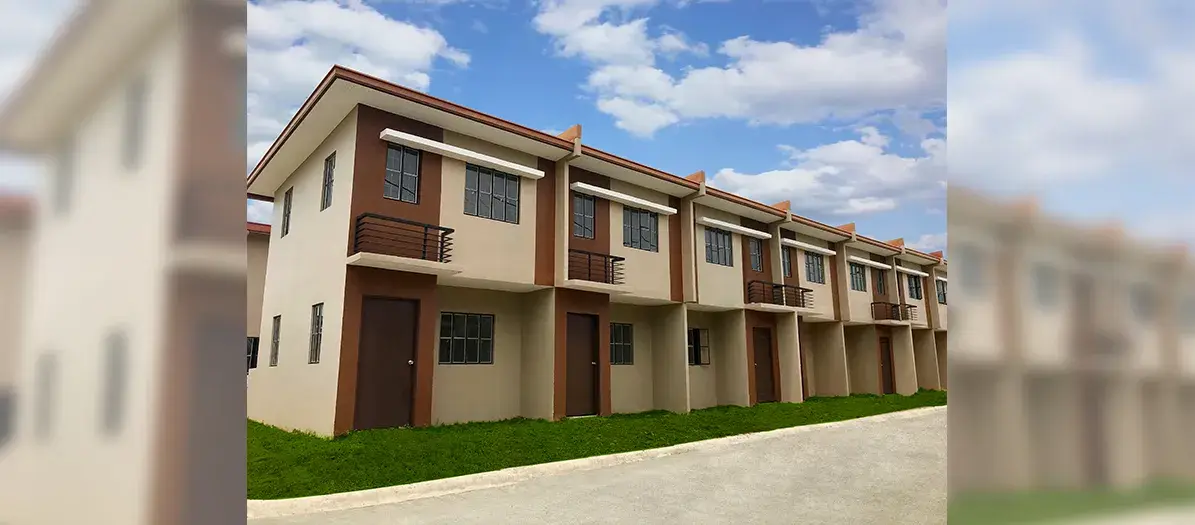Different Kinds of Fire Alarms for Your Home
23 June 2023
As a responsible owner of a house and lot Philippines, you must choose a fire alarm system perfectly suited to your needs. You must be mindful of the size of your property and consider how it works and how it will protect your assets better.
But how many kinds of fire alarms are there?
We share all kinds of fire alarm systems to let you know their features and uses, making them the best choice for your Lumina home.
6 Types of Fire Alarm Systems for Your Lumina Home
Basically, there are two main types of fire alarm systems - manual and automatic. The only difference is that manual fire alarms require human supervision, while automatic fire alarms can be triggered by fire or smoke via sensors.
Here is a list of different kinds of fire alarm systems.
Conventional Fire Alarm System
Conventional fire alarm systems are commonly used in smaller properties, or those with simpler fire detection needs. They are suitable for affordable house and lot properties, small offices, or retail spaces.
Its feature divides the property into zones, where each zone has a circuit connected to multiple devices, such as smoke detectors or manual call points. When an alarm is triggered, the zone in which the device is located is indicated, allowing for general identification of the fire's location.
Two-Wire Fire Alarm System
Now the two-wire fire alarm systems are often used in small to medium-sized properties. They provide a cost-effective solution for both new installations and retrofitting existing houses with minimal disruption.
This type of fire alarm system combines power and signal transmission on a single pair of wires, simplifying the installation process. They allow for devices, such as smoke detectors and sounders, to be connected on the same loop, reducing the amount of wiring required.
Wireless Fire Alarm System
Wireless fire alarm systems are ideal for houses where wiring is impractical or not feasible, such as historical structures or temporary installations. They offer flexibility and easy installation without the need for extensive wiring.
One of their best features is to utilize radio frequency communication between the control panel and various devices, including smoke detectors, heat detectors, and call points. The wireless technology allows for reliable communication and easy expansion or reconfiguration of the system.
Analogue-Addressable Fire Alarm System
The third type is the analogue-addressable fire alarm system. It is commonly employed in medium to large-scale properties. They provide advanced functionality and precise fire detection capabilities.
Analogue-addressable systems allow each device (e.g., smoke detector or heat detector) to have a unique address. This enables precise identification of the device's location and provides detailed information about the fire event, such as smoke levels or heat patterns. It allows for advanced programming and zoning, providing more accurate and reliable fire detection.
Hybrid Fire Alarm
Hybrid fire alarm systems are suitable for properties with diverse fire detection requirements or those undergoing phased upgrades. They provide a combination of wired and wireless capabilities, allowing for flexibility and compatibility.
Their best feature is to integrate both wired and wireless components, providing the benefits of both technologies. They can accommodate existing wired devices while allowing for wireless expansion or retrofitting in areas where wiring is challenging. This flexibility makes them adaptable to different building structures and fire safety needs.
Aspirating Smoke Detection System
Aspirating smoke detection systems are utilized in environments where early and highly sensitive smoke detection is critical. They use a network of sampling pipes connected to a central unit. The unit continuously draws air samples, analyzing them for smoke particles. This method provides early detection of smoke and allows for the identification of potential fire risks before visible smoke is present. Aspirating systems offer highly sensitive and reliable smoke detection.
5 Common Types of Fire Alarm System Detectors
Fire alarm systems ensure the timely detection of fires, allowing for swift evacuation and effective response. This is equipped to handle larger spaces, offering enhanced safety for occupants and property.
However, it also comes in different types of fire alarm detectors. Here are the most common ones.
Smoke Alarm
Smoke alarms are the most common type of fire alarm for homes. They use smoke detectors to sense the presence of smoke in the air. When smoke enters the chamber, it triggers an alarm. These types of fire alarms are designed to detect smoke, indicating the presence of a fire. They are crucial for providing early warning and alerting occupants to evacuate promptly.
One of the benefits of smoke alarms is that they are reliable, cost-effective, and easy to install. They save lives by providing early detection of fires, allowing people to escape to safety or call for help.
Carbon Monoxide
Carbon monoxide detectors use electrochemical sensors to detect the presence of carbon monoxide gas. They can operate independently or be integrated into smoke alarm systems. These kinds of fire alarms are essential in homes with fuel-burning appliances like furnaces, stoves, or water heaters. They provide early warning of Carbon Monoxide (CO), a type of gas that can be deadly.
Furthermore, carbon monoxide detectors protect against the dangers of carbon monoxide poisoning, which can occur due to malfunctioning or improperly ventilated appliances. They offer an additional layer of safety for occupants.
Heat
Heat detectors work based on temperature rise or fixed temperature settings. They are suitable for areas where smoke detectors may be unsuitable, such as kitchens or garages with high humidity or smoke from cooking. Thus, they are designed to detect significant temperature increases caused by fires. That is why they are commonly used in environments where smoke detection alone may result in false alarms.
Heat detectors complement smoke alarms by providing reliable fire detection in specific areas prone to heat-related fires. They ensure prompt alerts, especially in situations where smoke is not present or detectable.
Photoelectric
Another type of fire alarm is a photoelectric smoke alarm. It uses a light sensor to detect smoldering fires that produce larger smoke particles. It is known for its effectiveness in reducing false alarms.
Photoelectric smoke alarms are ideal for areas where smoldering fires are more likely to occur, such as bedrooms or living rooms with upholstered furniture. Its benefits include offering improved detection of smoldering fires, which may produce dense smoke before the flames become visible. This early detection helps occupants evacuate and seek assistance sooner.
Ionization Smoke Alarms
The last one is the ionization smoke alarms. It utilizes ionization detectors to sense fast-burning, flaming fires that produce smaller smoke particles. This is also highly responsive to rapidly spreading fires.
Ionization smoke alarms are suitable for areas where fast-burning fires are more common, such as kitchens or near combustible materials. It provides quick detection of fast-flaming fires, triggering timely alerts and allowing occupants to react swiftly. It is especially effective in scenarios where the fire develops rapidly.
What Type of Fire Alarm Do I Need for My Home?
Fire alarms are not a one-size-fits-all solution since the ideal choice depends on space size, cabling capabilities, and specific needs. Before making a purchase, it's advisable to conduct thorough research and evaluate your space's requirements.
If you feel uncertain, seek expert guidance or consult with security professionals. Their expertise will ensure you make the best choice for your fire alarm system, providing you with peace of mind and optimal safety measures.
When considering fire alarms, think of them as an investment in the safety and protection of your home. Whether you're looking for an affordable house and lot for sale in Lumina Homes or any other type of residential property, having a fire alarm system in place adds value and peace of mind. It ensures that your investment remains protected from potential fire risks, allowing you to enjoy your home with confidence and security.
Loan Calculator
Try Lumina Homes' loan calculator and get an estimate computation for your preferred Lumina property and home model.














